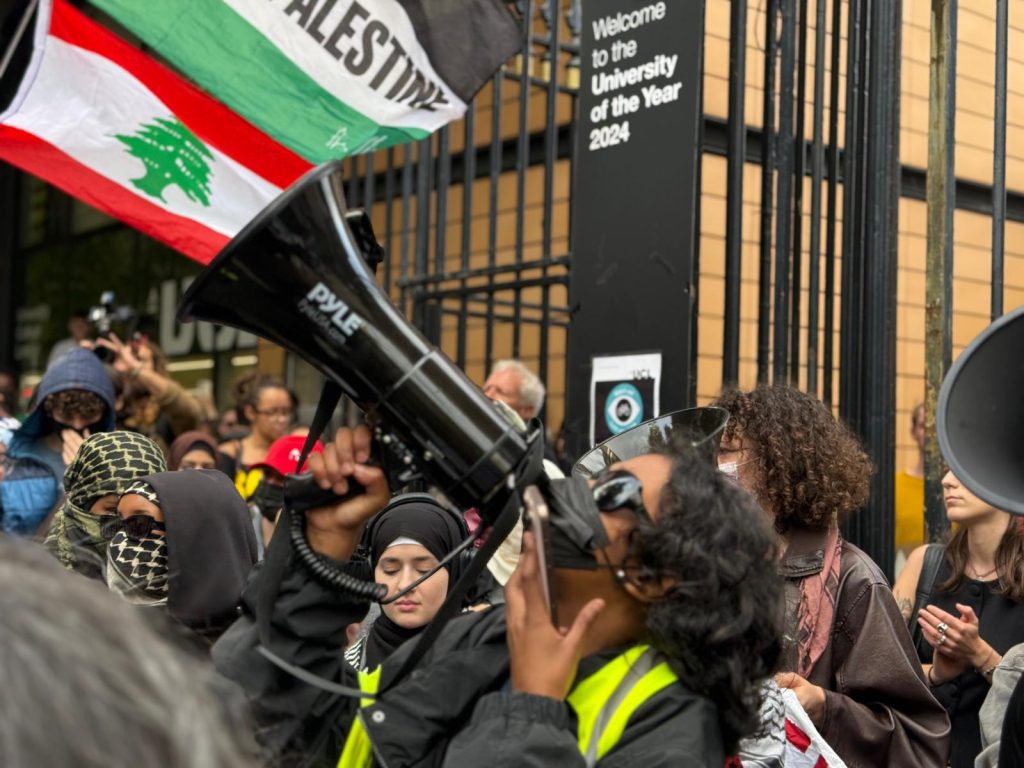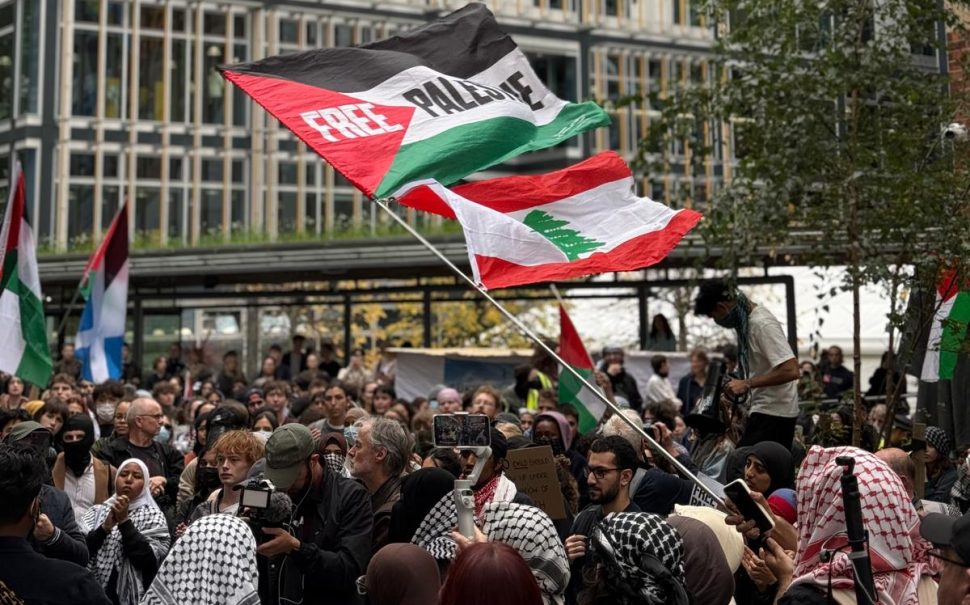Students have clapped back at a university watchdog after it threatened sanctions in the wake of pro-Palestine demonstrations.
Arif Ahmed, director for freedom of speech and academic freedom at the Office for Students (OfS), told the BBC the organisation would be prepared to act if universities did not take appropriate steps to protect students from antisemitism.
The OfS, which is the independent regulator of higher education in the UK, has the ability to fine universities, cut off their access to public funding and revoke their ability to award degrees if requirements are not met.
Ahmed’s comments follow the October 7 student-led protests against the two-year genocide in Gaza, which were organised by London universities University College London (UCL), King’s College London (KCL), the London School of Economics and Political Science (LSE), and SOAS University of London.
President of the Jewish Society at SOAS University of London, Adam Hinden, 25, told the Londoners: “I do think that there’s this sort of idea that preventing these protests is going to help Jewish students feel more safe.
“And I think that might be true if these Jewish students are resting their safety on the lack of criticism of Israel and the crimes that it’s committing.

“I actually think that it endangers Jewish students even more to claim that this repression is about Jewish protection.”
Prime Minister Sir Keir Starmer has been actively condemning protests in support of Palestine since the attack on a Manchester synagogue on 2 October, which saw two people killed.
In advance of the October 7 demonstrations, Starmer urged students not to take part, writing for The Times that it was ‘un-British to have little respect for others’ and a ‘despicable excuse to attack British Jews‘.
Hinden said: “If I have ever felt fear or some sort of threat of antisemitism, it is from [comments] like that.
“For [the Prime Minister] to use the two souls that were taken on Yom Kippur in Manchester, regardless of if these people were Zionist or not, as fodder for political repression, I think, is awful, and I think it will only further divide communities.”
On Sunday, Education Secretary Bridget Phillipson shared that the government was funding training to help staff and students at universities as part of an effort to allow Jewish students ‘to conduct their studies and express their Jewish identities in safety’.
President of the Jews for Palestinian Justice Society at UCL, Dora Fidler, 20, said: “The Jewish community isn’t a monolith.
“Without us being able to exist and speak freely about what it is we believe, it paints the entire Jewish community as a monolith, and suggests that any leaders of the Jewish community speak for every member of [it], and that there’s one opinion, and one thought, and that’s dangerous in many ways.
“It’s dangerous for the Jewish community, because we’ll see spikes in anti-Semitism, and dangerous hate speech, and it’s also upsetting for us to feel like the people speaking for us are not [saying] the things that we’re thinking.
“That’s why it’s important for us to feel like we have freedom of expression and freedom of speech.”
A member of the KCL society Students for Justice for Palestine, who wishes to remain anonymous, took part in the October 7 protests on campus.
They said: “There’s no room for antisemitism in the movement. Absolutely no room.
“[The protests are] a very welcoming environment. The people who make it unwelcoming are the people who dare to contradict our cause to end the genocide.
“The people who counter that, they’re the people who harass, they’re the people who make it unwelcoming, they’re the people who make it, you know, difficult for everyone else.
“All we want is the end of the genocide and the end of the oppression.”
A spokesperson for the OfS said: “Freedom of speech includes the right to peaceful protest within the law. This right is fundamental, but it does not include unlawful support for terrorism or proscribed organisations.
“We recognise that Jewish students will have a range of differing views on all sorts of topics, including the situation in the Middle East.
“They should be free to express these views without fear of unlawful harassment or discrimination.”
Featured image credit: Suha Kidwai





